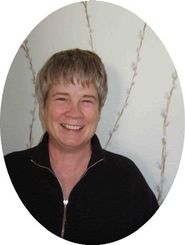|
Updated 01/06/16
|
|
Where Did We Go Wrong (Who are We)?
|
Carl Jung, an introvert himself, never considered 'Introverts' to be lesser value than 'Extraverts'
in his 1921 book Psychological Types, where those terms were popularized. The take back then, was that such personality traits were just....'different': http://psychclassics.yorku.ca/Jung/types.htm Try this free test to find your own 4-letter personality type formula: Carl Jung and Isabel Briggs Myers typology: http://www.humanmetrics.com/cgi-win/JTypes2.asp Today's brain scans are confirming that introverts and extroverts do in fact have key physiological differences related to where we get our energy, but, there is no indication any of those differences are detrimental. Here's a neuroscience description of what's going on: http://coralwaters.wordpress.com/2012/03/23/the-neuroscience-of-introversion/ In a nutshell: Extroverts get energy with interaction; Introverts get energy from within themselves. Extroverts are linked with the dopamine, energy-spending, sympathetic nervous system; Introverts link with the acetylcholine, energy-conserving, parasympathetic nervous system. The above concept is described in "The Introvert Advantage" by Marti Olsen Laney, Psy.D., a researcher, educator, author, and psychotherapist. One of America’s foremost authorities on introversion, she speaks and leads workshops on the topic in the United States and Canada. http://hiddengiftsoftheintrovertedchild.com/about-the-author/the-introvert-advantage/ "What makes Us Introverts and Extroverts" by John Reiping, October 31, 2012: http://wambly.weebly.com/what-makes-us-introverts-and-extroverts.html Their hard-wired physiology requires each personality temperament to recharge energy differently for optimal brain health: -- The extroverts must seek stimulation from social activity, exercise, or chemical forms, for nourishing / recharging primary dopamine pathways. -- Introverts actually require far less dopamine, and so they can be easily over-stimulated by the ongoing, crucial-for-extrovert activity; solitude is required for the introvert nourishment / recharging of primary acetylcholine pathways. Understanding basic differences in the brain recharging strategies for introverts and extroverts is important for all facets of our population. -- For example, any school’s failure to provide young introverts with adequate short breaks in quiet solitude for recharging their acetylcholine pathways, might contribute to certain learning issues: When young introverts lack appropriate brain-recharging downtime... ”…..behavior, performance and spirit will suffer; they will not be able to come up with the required energy for learning new things, taking new risks, exploring, developing and thriving.” The above excerpt is from: "Are you Raising an Introvert?" L. La Fevers has authored thirteen books for young readers: http://geekmom.com/2011/04/are-you-raising-an-introvert/ "The biggest challenge faced by introverts today, is not to feel like misfits in their own culture.” “.....To the extent that introverts feel the need to explain, apologize or feel guilty about what works best for them, they feel alienated not only from society but from themselves.” The above excerpt is from Laurie Helgoe, Ph.D, Psychology Today, September 01, 2010; last reviewed July 30, 2013: http://www.psychologytoday.com/articles/201008/revenge-the-introvert |


